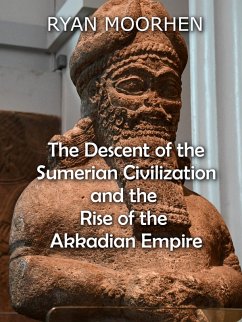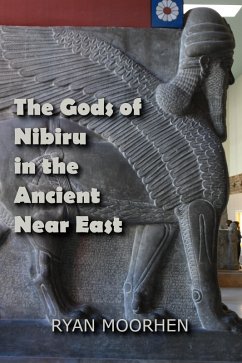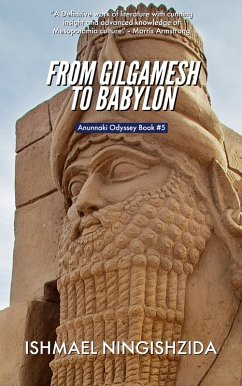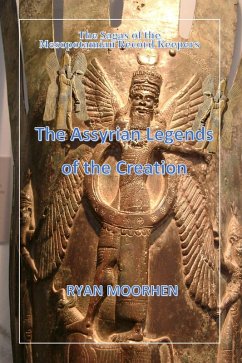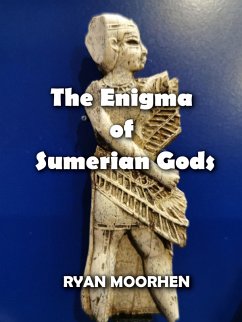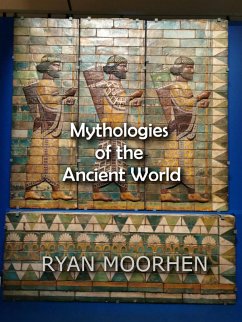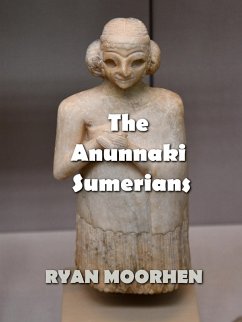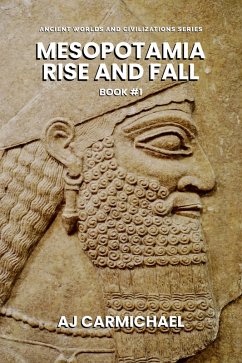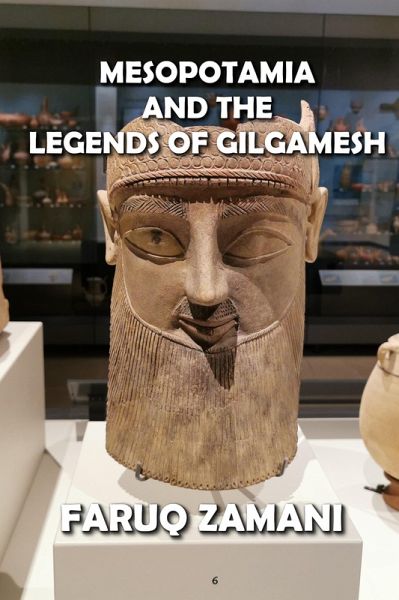
Mesopotamia and the Legends of Gilgamesh (eBook, ePUB)
Versandkostenfrei!
Sofort per Download lieferbar
8,99 €
inkl. MwSt.
Weitere Ausgaben:

PAYBACK Punkte
0 °P sammeln!
Mankind lived in Paradise for a long time, , God said to unnamed colleagues: "Is it possible that he may also take from the Tree of Life and live forever?" Having eaten the Fruit of Knowledge, but forbidden from reaching for the Fruit of the Tree of Life. Following Adam's eating of the Fruit of Knowledge..Since then, man has sought Immortality withheld by God. Yet throughout the millennia, it has gone unnoticed that while concerning Yahweh's Tree of Knowing: Adam became a part of us after eating it, no such statement has been made regarding "From the fruit of the Tree of Life, we can live fore...
Mankind lived in Paradise for a long time, , God said to unnamed colleagues: "Is it possible that he may also take from the Tree of Life and live forever?" Having eaten the Fruit of Knowledge, but forbidden from reaching for the Fruit of the Tree of Life. Following Adam's eating of the Fruit of Knowledge..
Since then, man has sought Immortality withheld by God. Yet throughout the millennia, it has gone unnoticed that while concerning Yahweh's Tree of Knowing: Adam became a part of us after eating it, no such statement has been made regarding "From the fruit of the Tree of Life, we can live forever..
Was it because the promise of "Immortality," made to Mankind as a distinctive attribute of the gods, was nothing more than a grand illusion?
A king of Uruk, Gilgamesh, son of Ninsun and Lugalbanda, was the first to try and find out.
While the tales of Enmerkar and Lugalbanda are enchanting and intriguing, the post-Diluvial Luga has to be one of the most compelling! Gilgamesh was the demigod who ruled Uruk from 2750 to 2600 BCE and had the longest and most detailed records. Throughout Gilgamesh's long Epic, he searches for Immortality, believing that since two-thirds of him are gods and one-third are humans, he should not "peer over the wall" as a mortal.
Genealogically, he was more than just a demigod, more than a fifty-fifty god. King Lugalbanda, son of Lnanna and High Priest of Uruk, possessed the "divine" determinative. Gilgamesh was described as having the "essence of Ninurta" (Enlil's foremost son) because of his mother, Nin. Sun ('Lady Who Irrigates') was the daughter of Ninurta and his spouse, Batu. Anu's youngest daughter Bau was of a noble family.
Since then, man has sought Immortality withheld by God. Yet throughout the millennia, it has gone unnoticed that while concerning Yahweh's Tree of Knowing: Adam became a part of us after eating it, no such statement has been made regarding "From the fruit of the Tree of Life, we can live forever..
Was it because the promise of "Immortality," made to Mankind as a distinctive attribute of the gods, was nothing more than a grand illusion?
A king of Uruk, Gilgamesh, son of Ninsun and Lugalbanda, was the first to try and find out.
While the tales of Enmerkar and Lugalbanda are enchanting and intriguing, the post-Diluvial Luga has to be one of the most compelling! Gilgamesh was the demigod who ruled Uruk from 2750 to 2600 BCE and had the longest and most detailed records. Throughout Gilgamesh's long Epic, he searches for Immortality, believing that since two-thirds of him are gods and one-third are humans, he should not "peer over the wall" as a mortal.
Genealogically, he was more than just a demigod, more than a fifty-fifty god. King Lugalbanda, son of Lnanna and High Priest of Uruk, possessed the "divine" determinative. Gilgamesh was described as having the "essence of Ninurta" (Enlil's foremost son) because of his mother, Nin. Sun ('Lady Who Irrigates') was the daughter of Ninurta and his spouse, Batu. Anu's youngest daughter Bau was of a noble family.
Dieser Download kann aus rechtlichen Gründen nur mit Rechnungsadresse in A, B, CY, CZ, D, DK, EW, E, FIN, F, GR, H, IRL, I, LT, L, LR, M, NL, PL, P, R, S, SLO, SK ausgeliefert werden.




